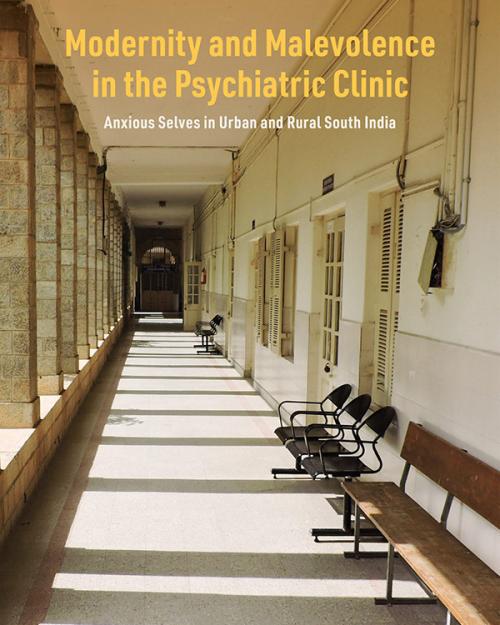There are still seats available in these anthropology courses...
Cultural Diversity and Contemporary Issues
MW 12:25-1:15
Instructor: Magnus Fiskesjo
This course will introduce students to the meaning and significance of forms of cultural diversity for the understanding of contemporary issues. Drawing from films, videos, and selected readings, students will be confronted with different representational forms that portray cultures in various parts of the world, and they will be asked to examine critically their own prejudices as they influence the perception and evaluation of cultural differences. We shall approach cultures holistically, assuming the inseparability of economies, kinship, religion, and politics, as well as interconnections and dependencies between world areas such as Africa, Latin America, the West. Among the issues considered: political correctness and truth; nativism and ecological diversity; race, ethnicity, and sexuality; sin, religion, and war; global process and cultural integrity.
The Social Life of Money
MW 10:10-11:00
Instructor: Amiel Bize
What is money? How do people use money in the real world? How are technological innovations changing people's perceptions of money? This course introduces anthropological perspectives on economy and society through a variety of ethnographic studies of money and finance. Topics of discussion include “primitive money” and colonial currencies, the uses of money in religious and ritual practices, social and cultural meanings of numbers, mobile money, crypto-currency and other alternative currency systems, and the social life of finance.
Global Heritage
TR 9:40-10:55
Instructor: Adam Smith
Heritage typically conjures images of a glorified human past, and evokes sentiments of care for lost or endangered cultures that symbolize humanity's diversity. But heritage is also the foundation for a multi-billion dollar tourist industry and a basis for claims to national sovereignty. A closer look at heritage reveals institutions, places, and things possessed of extraordinary power. Drawing on case studies from around the world, this course attends to the complexities of heritage today. Topics include heritage ethics, tourism and the marketing of the past, approaches to preservation and management, disputed heritage and violence, heritage ideologies from nationalism to universalism, participation and inequality from the grassroots to the global, counterheritage, and the practice of public archaeology. Students apply insights gained by designing projects as heritage practitioners, engaged with heritage-scapes at Cornell and beyond.
From the Swampy Land: Indigenous People of the Ithaca Area (New Course)
TR 9:40-10:55
Instructor: Kurt Jordan
Who lived in the Ithaca area before American settlers and Cornell arrived? Where do these indigenous peoples reside today? This class explores the history and culture of the Gayogoho:no (Cayuga), which means people from the mucky land. We will read perspectives by indigenous authors, as well as archaeologists and historians, about past and current events, try to understand reasons why that history has been fragmented and distorted by more recent settlers, and delve into primary sources documenting encounters between settlers and the Gayogoho:no. We will also strive to understand the ongoing connections of the Gayogoho:no to this region despite forced dispossession and several centuries of colonialist exclusion from these lands and waters.
Across the Seas: Contacts between the Americas and the Old World Before Columbus
MW 2:45-4:00
Instructor: John Henderson
This course considers the possibility of connections between the America and the Old World before the Spanish discovery not only as an empirical question, but also as an intensely controversial issue that has tested the limits of the scholarly detachment that archaeologists imagine characterizes their perspectives. We will consider the evidence for several possible episodes of interaction as well as the broader issue of how long-distance interaction can be recognized in the archaeological record. Transoceanic contact is a common element in popular visions of the American past, but most professional archaeologists have rejected the possibility with great vehemence. The issue provides an interesting case study in the power of orthodoxy in archaeology.
Ancient Mexico and Central America
MW 9:40-10:55
Instructor: John Henderson
An introduction to ancient Mesoamerica, focusing on the nature and development of societies that are arguably the most complex to develop anywhere in the precolumbian Americas. The course provides a summary of the history of the region before the European invasion, but the emphasis is on the organization of Mesoamerican societies: the distinctive features of Mesoamerican cities, economies, political systems, religion. We begin by considering Mesoamerican societies at the time of the Spanish invasion. Our focus will be on descriptions of the Aztecs of Central Mexico by Europeans and indigenous survivors, in an attempt to extract from them a model of the fundamental organizational features of one Mesoamerican society, making allowances for what we can determine about the perspectives and biases of their authors. We then review the precolumbian history of Mesoamerica looking for variations on these themes as well as indications of alternative forms of organization. We will also look at such issues as the transition from mobile to sedentary lifeways, the processes involved in the domestication of plants and animals, the emergence of cities and states, and the use of invasion-period and ethnographic information to interpret precolumbian societies in comparative perspective.
Primate Behavior and Ecology with Emphasis on African Apes
MWF 12:25-1:15
Instructor: Adam Clark Arcadi
The course will investigate all aspects of non-human primate life. Based on the fundamentals of evolutionary theory, group and inter-individual behaviors will be presented. In addition, an understanding of group structure and breeding systems will be reached through an evaluation of ecological constraints imposed on primates in different habitats. Subjects include: primate taxonomy, diet and foraging, predation, cooperation and competition, social ontogeny, kinship, and mating strategies.
Zooarchaeological Interpretation
MW 2:45-4:00
Instructor: Nerissa Russell
This course follows from last semester's Zooarchaeological Method. We will shift our emphasis here from basic skills to interpretation, although you will continue to work with archaeological bones. We will begin by examining topics surrounding the basic interpretation of raw faunal data: sampling, quantification, taphonomy, seasonality. We will then explore how to use faunal data to reconstruct subsistence patterns, social structure, and human-animal relations.
American Indian Lands & Sovereignties
T 2:40-4:35
Instructor: Paul Nadasdy
The relationship between North American Indian peoples and the states of Canada and the US is in many ways unique, a product of centuries of trade compacts, treaties, legislation, warfare, land claim negotiations, and Supreme Court decisions. Apparently straightforward concepts such as “land,” “property,” and “sovereignty,” based as they are on European cultural assumptions, often seem inadequate for making sense of the cross-cultural terrain of Indian-State relations, where they tend to take on new – and often ambiguous – meanings. In this course we will explore some of these ambiguous meanings, attending to the cultural realities they reflect and the social relationships they shape. Then we will examine the complex interplay of legal, political, and cultural forces by taking an in-depth look at several selected case studies.
Check out our full list of courses.





